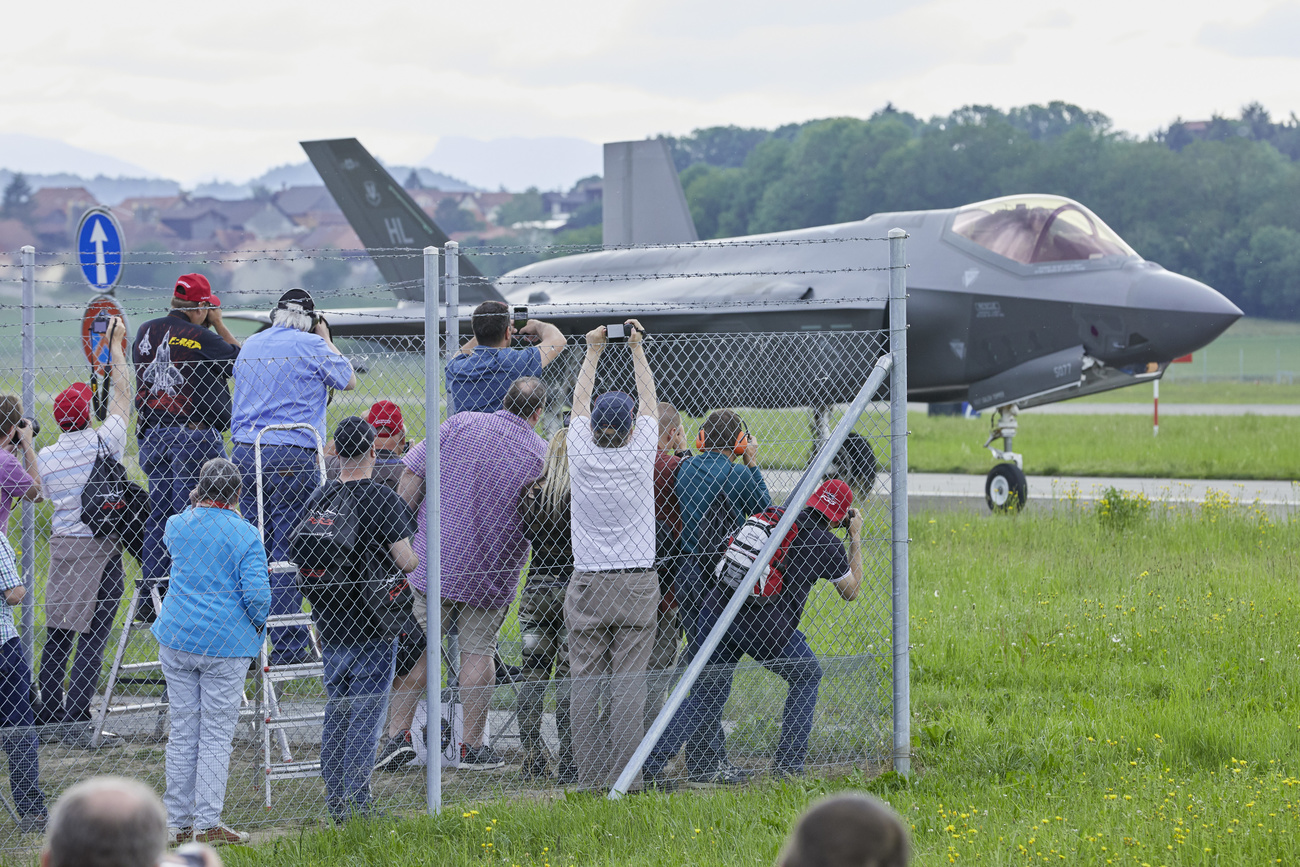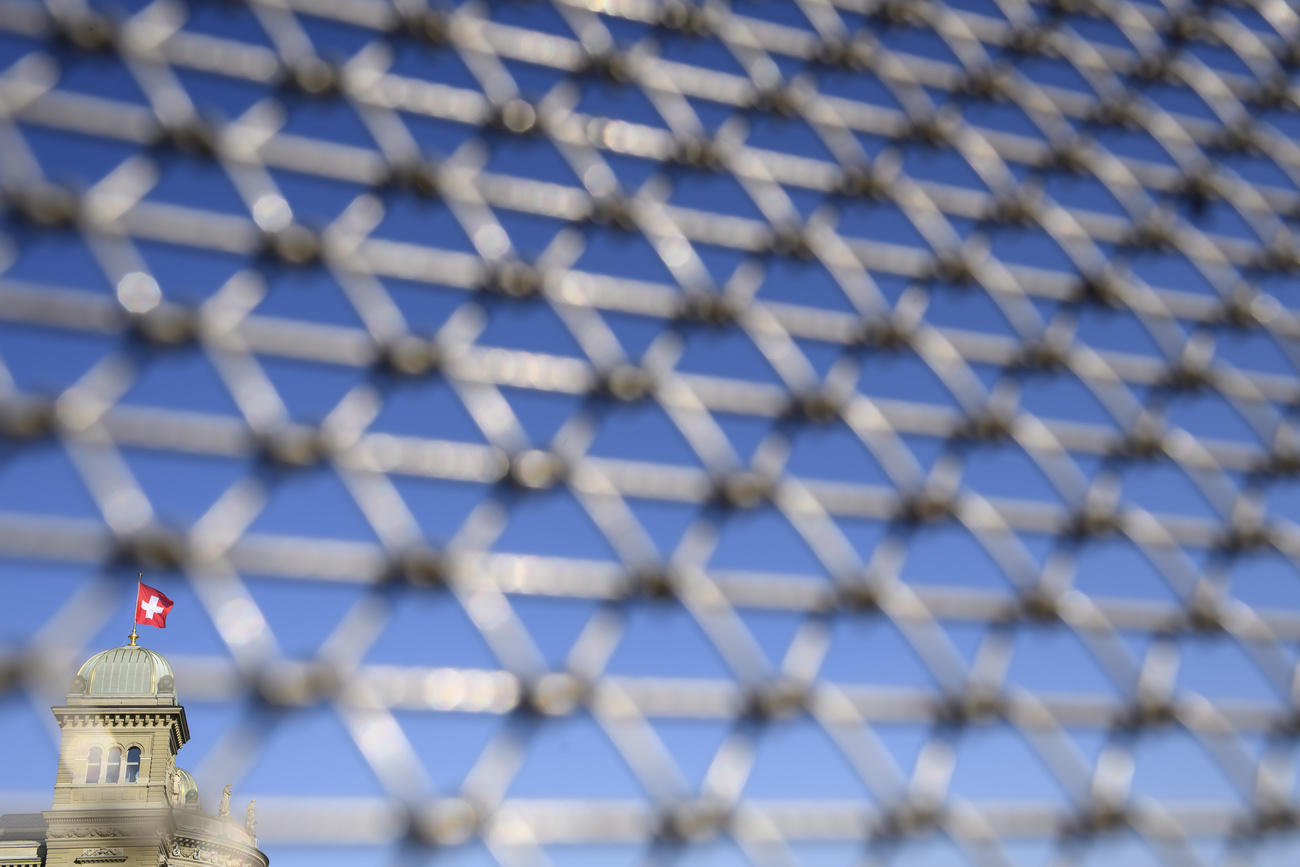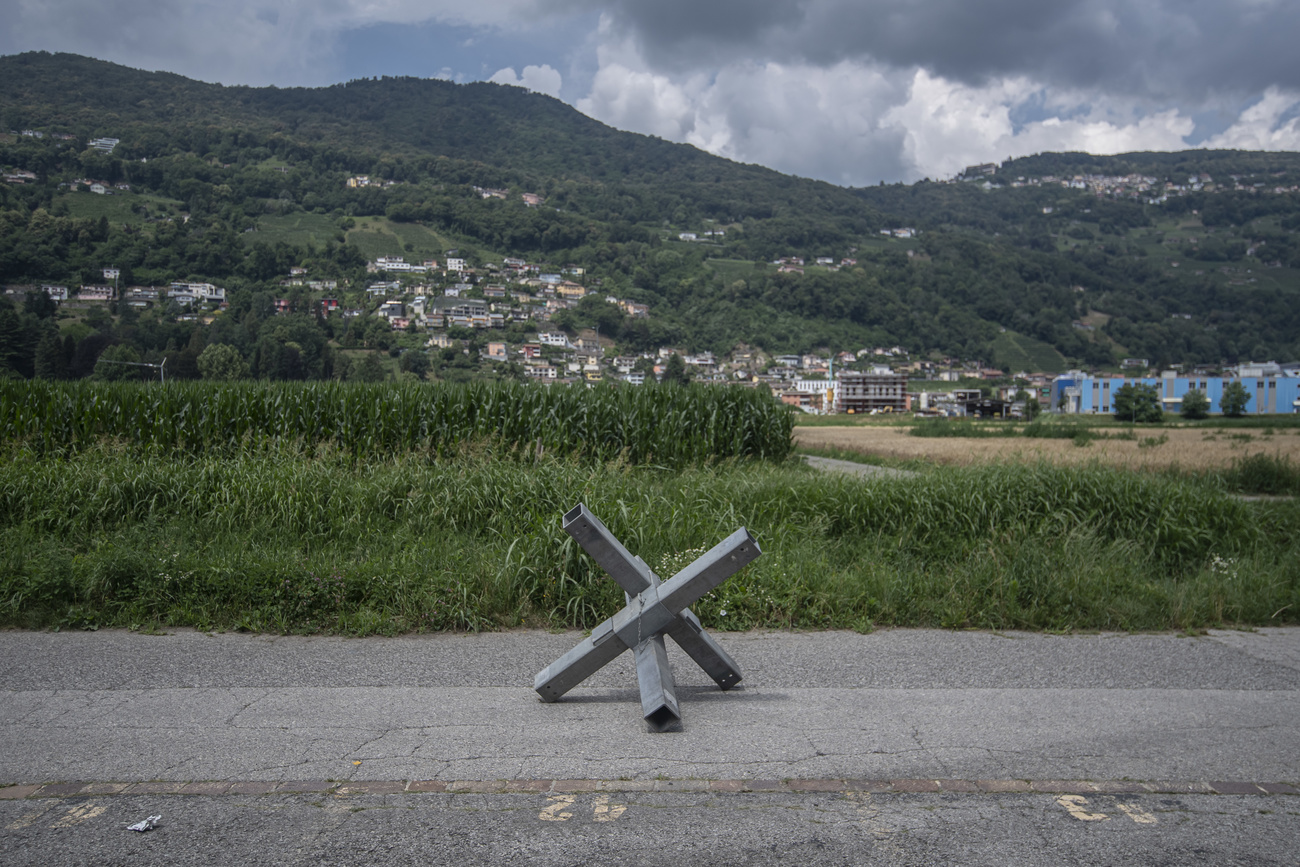
European nations snub Swiss-made weapons over Ukraine restrictions

European countries are increasingly avoiding or halting arms purchases from Switzerland, chafing at restrictions linked to the country’s neutrality. A case involving Germany is stirring controversy in Switzerland.
Germany and Switzerland have close political and economic ties. The neighbouring nations largely share the same values. Germany is also the largest buyer of Swiss weapons, ammunition and other military-grade goods.
However, Germany has now decided to exclude Swiss companies from certain military procurement contracts. As the French-language newspaper Le TempsExternal link first reported, a letter to that effect was received by the Federal Office for Defence Procurement, armasuisse. This has raised alarm among defence companies, with politicians from all parties expressing their anger at the German decision, which they claim does not respect the country’s neutrality and democratic process.

More
Our weekly newsletter on geopolitics
The message from Germany is clear: Switzerland is no longer considered a reliable partner since it prohibited Germany from passing Swiss-made arms to Ukraine. Here are the key points behind this unfolding drama.
How did Germany signal its refusal to take Swiss-made military technology?
Drones have become the fastest-evolving military technology. In the Russia-Ukraine war, they are used in every conceivable way, drastically transforming warfare.
Since drones also offer new reconnaissance capabilities, significant investments are being made in new camouflage technologies. One example is multispectral camouflage nets, which hinder not only visual detection but also radar and thermal imaging. The German Armed Forces would like to purchase 100,000 of these nets.
The substantive order sparked the interest of a Swiss company during the bidding phase. However, upon inquiry, the Swiss company was informed that companies from the European Free Trade Association (EFTA) – which includes Switzerland, Norway, Iceland, and Liechtenstein – are not allowed to participate.
When armasuisse inquired further, it received a letter confirming the German position. According to armasuisse director Urs Loher, this is a clear signal that Switzerland is no longer seen as “reliable” in Germany. In the German parliament, the term “Swiss Free” is reportedly being used alongside “China Free,” a catch phrase for minimising security risks, according to Swiss German newspaper NZZ.

More
Neutral Switzerland dips its toe in European military activities
What are the roots of the German-Swiss rift over weapons?
Germany’s letter said the decision stems from Switzerland’s refusal last year to allow the export of 12,400 rounds of Gepard tank ammunition to Ukraine. Germany had purchased this ammunition from Switzerland three decades ago.
Switzerland based its refusal on its War Materiel Act, which prohibits the re-export of Swiss-made weapons to countries involved in active conflict. While the Swiss government reaffirmed its condemnation of Russia’s aggression against Ukraine, it emphasised that the legal criteria for rejecting the request were mandatory and rooted in Switzerland’s neutrality.
This led to a temporary rift between Germany and Switzerland. As a NATO member, Germany is obliged to provide military aid to its alliance partners. Germany warned Switzerland that if it blocked this effort, it would find alternative solutions, according to the NZZ. The recent letter reaffirms that position.

More
A majority of Swiss want closer ties to NATO – but with reservations
Which European nations avoid Swiss war materiel?
The Netherlands was the first country to start avoiding buying Swiss war materiel. The Dutch parliament decided last year to stop purchasing any arms from Switzerland after the Swiss blocked the export of 96 Leopard-1 tanks stored in Italy. The Netherlands had intended to repair the tanks in Germany before sending them to Ukraine.
Similar considerations are being made in Spain and Denmark, according to media reports. Denmark has not forgotten Switzerland’s refusal two years ago to allow the transfer of Piranha III armoured vehicles to Ukraine. Spain was likewise denied permission to re-export two 35mm anti-aircraft missiles imported from Switzerland due to the War Materiel Act.
What does this mean for the Swiss defence industry?
Politically, Germany is Switzerland’s most important ally within the European Union. It is also a key trading partner – the trade volume with just the two southern-most German states is greater than Switzerland’s total trade volume with China.
While the announcements made so far aren’t a severe blow to Switzerland’s arms industry, they serve as a clear warning that Europe wants Switzerland to change course. Security experts point out that Swiss companies need to be able to export their products, both for financial reasons and to remain integrated into international production and logistics chains. If they cannot, it could ultimately hurt Switzerland’s own defence capabilities, reducing its autonomy.
Critics, however, argue that Swiss security autonomy is an illusion, as the country benefits disproportionately from the security provided indirectly by NATO and the EU.

More
Explainer: Russia pushes Europe’s neutral states closer to NATO
What happens next? Is there hope for Ukraine?
Switzerland does not deliver arms to countries involved in conflict – its neutrality forbids it. However, many struggle to understand why weapons sold long ago to partner countries can’t be passed on to Ukraine, which is exercising its internationally recognised right to self-defence. This sentiment is shared not only abroad but also within Switzerland.
The Swiss parliament quickly agreed that the War Materiel Act should be amended. One proposal is to grant the government greater flexibility in approving arms deals under “exceptional circumstances”. Additionally, states that share Swiss values and have comparable export control regimes could be allowed to re-export war materials purchased in Switzerland after five years. This would apply when the destination country is exercising its right to self-defence, backed by a corresponding UN declaration.
It remains unclear how much these potential changes would benefit Ukraine. A referendum on the law is expected but it wouldn’t take place before the end of 2025. Therefore, no Swiss-made weapons could reach Ukraine before 2026.
Edited by Balz Rigendinger, translated from German by David Kelso Kaufher/ds
More

In compliance with the JTI standards
More: SWI swissinfo.ch certified by the Journalism Trust Initiative






























You can find an overview of ongoing debates with our journalists here . Please join us!
If you want to start a conversation about a topic raised in this article or want to report factual errors, email us at english@swissinfo.ch.